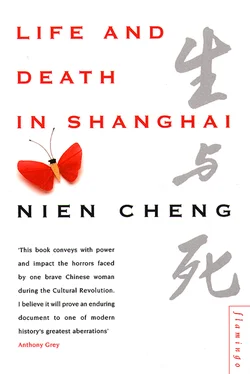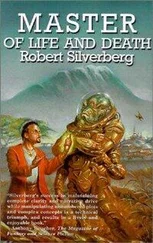When Lao Chao opened the gate for me, I asked about the poster signed by the children of my neighbour. Lao Chao told me that my neighbour’s servant had told him that it was the father’s idea to save his children from persecution.
The Red Guards’ activities intensified by the hour. The very next day they entered the house of my neighbour across the street. His wife refused to open the front gate and turned the garden hose on the Red Guards to prevent them from entering. They simply smashed the gate down, snatched the hose from her and drenched her with water. Then they knocked her down and beat her for resisting their revolutionary action. Her children tried to defend their mother and got into a fight with the Red Guards. They were denounced as ‘Puppies of the running dog of Swiss imperialism’, and made to assist the Red Guards in burning their father’s books.
Day and night the city resounded with the loud noise of drums and gongs. News of looting and the ransacking of private homes all over the city reached me from different sources. I tried to reach Mr Hu by telephone without success. It was the same with my other friends. The violence of the Red Guards seemed to have escalated. I heard of victims being humiliated, terrorized and often killed when they offered resistance. Articles in the newspapers and talks by leading Maoists encouraged the Red Guards and congratulated them on their vandalism. They were declared to be the true successors to the cause of the proletarian Revolution and exhorted to be fearless and to overcome difficulties in their work of toppling the old world and building a new one based on Mao’s teachings.
I felt utterly helpless. There was nothing I could do to prevent the destruction of my home and the loss of all my possessions. My daughter became very worried. More than once, she talked about our not being able to live on her small salary. I decided the time had come to tell her about my bank accounts in Hong Kong and elsewhere which, I told her, would be more than sufficient to cover our living expenses. Actually I myself was more worried about her status after the Cultural Revolution. If a new society was to be formed in which descendants of capitalist-class families were to become a permanently unprivileged class in China, like the Untouchables in India, her life would be unthinkable. To me this was of more importance than the loss of our material possessions.
To take care of the servants, I decided to give them the 6,000 yuan I had obtained from the bank straightaway before the Red Guards came to our house. At first they refused to accept the money, reiterating their wish to remain to look after Meiping and myself. They also offered to hide my jewellery and valuables in their homes. Not wishing to implicate them in my own difficulties, I refused. I called Chen Mah, Lao Chao and Cook to my study and discussed with them how best to divide the money among the three of them. Because the gardener was not a full-time employee and came only occasionally, I decided to give him only 400 yuan. Chen Mah offered to take less than the other two because, she said, ‘They have to take care of their wives.’ After I had divided the money, I placed the 400 yuan for the gardener in an envelope intending to give it to him the next time he came to work in the garden.
I told my servants that if they were afraid, they could leave any time. When the Cultural Revolution was over, if I was financially able, I would give them additional money, for they had all been with me for a very long time.
After that had been done, I waited for the Red Guards.
AS THE TEMPO OF the Proletarian Cultural Revolution gathered momentum, all-night sessions of political indoctrination were often held in different organizations. On the evening of 30 August when the Red Guards came to loot my house, my daughter was at her Film Studio attending one of these meetings. I was sitting alone in my study reading The Rise and Fall of the Third Reich, which had come in the last batch of books from a bookshop in London with which I had an account. Throughout the years I worked for Shell, I managed to receive books from this shop by having the parcels sent to Shell because the Shanghai censors always passed unopened all parcels addressed to organizations. Since the office received an enormous amount of scientific literature for distribution to Chinese research organizations, my small parcel attracted no undue attention.
The house was very quiet. I knew Lao Chao was sitting in the pantry as he had done day after day. Chen Mah was in her room, probably lying in bed wide awake. There was not the slightest sound or movement anywhere, almost as if everything in the house was holding its breath waiting helplessly for its own destruction.
The windows of my study were open. The bitter-sweet perfume of the magnolia in the garden and the damp smell of the cool evening air with a hint of autumn pervaded the atmosphere. From the direction of the street, faint at first but growing louder, came the sound of a heavy motor vehicle slowly approaching. I listened and waited for it to speed up and pass the house. But it slowed down and the motor was cut off. I knew my neighbour on the left was also expecting the Red Guards. Dropping the book on my lap and sitting up tensely, I listened, wondering which house was to be the target.
Suddenly the door bell began to ring incessantly. At the same time, there was furious pounding of many fists on my front gate, accompanied by the confused sound of many hysterical voices shouting slogans. The cacophony told me that the time of waiting was over and that I must face the threat of the Red Guards and the destruction of my home. Lao Chao came up the stairs breathlessly. Although he had known the Red Guards were sure to come eventually and had been waiting night after night just as I had done, his face was ashen.
‘They have come!’ His unsteady voice was a mixture of awe and fright.
‘Please keep calm, Lao Chao! Open the gate but don’t say anything. Take Chen Mah with you to your room and stay there,’ I told him.
Lao Chao’s room was over the garage. I wanted both of them to be out of the way so that they could be prevented from saying anything to offend the Red Guards out of a sense of loyalty to me.
Outside, the sound of voices became louder. ‘Open the gate! Open the gate! Are you all dead? Why don’t you open the gate?’ Some were heard swearing and kicking the wooden gate. The horn of the truck was blasting too.
Lao Chao ran downstairs. I stood up to put the book on the shelf. A copy of the Constitution of the People’s Republic caught my eye. Taking it in my hand and picking up the bunch of keys I had ready on my desk, I walked downstairs.
Although in my imagination I had already lived through this moment many times, my heart was pounding. However, lifelong discipline enabled me to maintain a calm appearance. By the time I had reached the bottom of the staircase, I was the epitome of Chinese fatalism.
At the same moment, the Red Guards pushed open the front door and entered the house. There were between thirty and forty senior high school students, aged between fifteen and twenty, led by two men and one woman much older. Although they all wore the armbands of the Red Guards, I thought the three older people were the teachers who generally accompanied the Red Guards when they looted private homes. As they crowded into the hall, one of them knocked over a pot of jasmine on a Fen T’sai porcelain stool. The tiny white blooms scattered on the floor were trampled by their impatient feet.
The leading Red Guard, a gangling youth with angry eyes, stepped forward and said to me, ‘We are the Red Guards. We have come to take revolutionary action against you!’
Though I knew I was doing something futile and pointless, I held up the copy of the Constitution and said calmly, ‘It’s against the Constitution of the People’s Republic of China to enter a private house without a search warrant.’
Читать дальше












